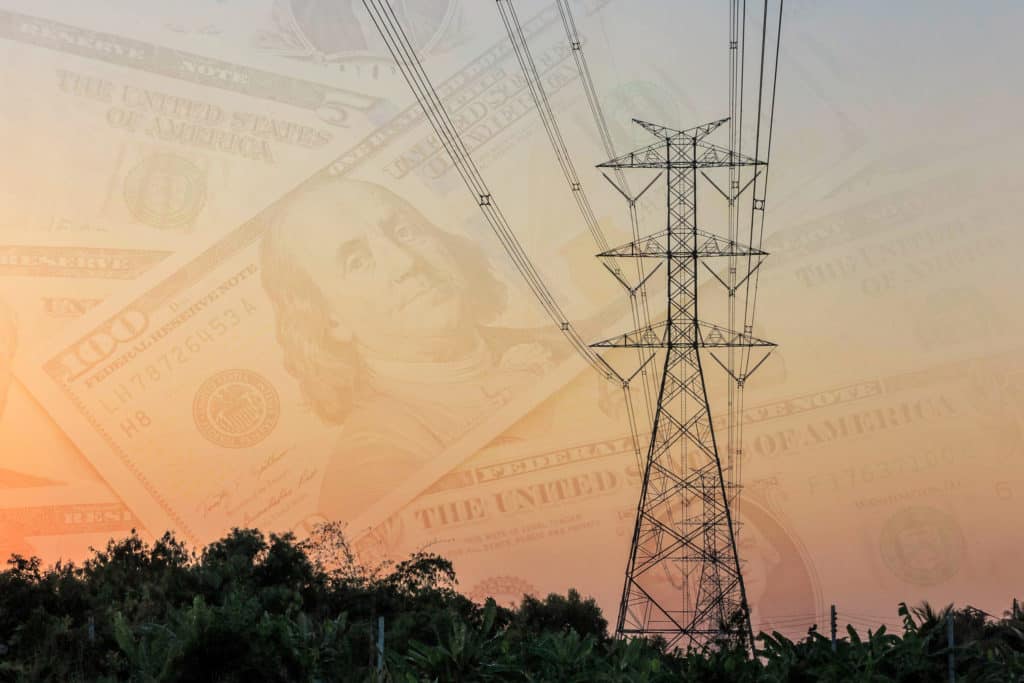Coalition urges federal regulators to create economic incentives for grid resilience

Electricity tower and electric line and dollar cash background, Electricity spending, Electricity infrastructure investment, Urbanization concept, double exposure
In the wake of the disastrous February 2021 blackout of the Texas electric grid, there is a growing movement to ensure the ability to continue to provide power despite a variety of potential hazards.
Following a formal complaint, the Federal agency responsible for oversight of the bulk power electric system nationwide, the Federal Energy Regulatory Commission (FERC), opened a docket inviting public comment on whether FERC should open an investigation into grid reliability standards.
“This regulatory inaction is causing deaths, impacts to the critical infrastructures, and economic loss — it is unacceptable,” the complaint reads.
Lobbying groups representing the electric power industry filed motions suggesting FERC dismiss the complaint – noting that FERC and the North American Electric Reliability Corporation (NERC) already announced they would open a “joint inquiry” into “2021 cold weather grid operations.”
But FERC previously executed a similar inquiry in response to the 2011 Texas Grid blackout, cited in the original complaint. That 2011 report did not result in notable improvements, however.
The Center for Security Policy’s Secure the Grid Coalition filed a motion in support of the complaint, emphasizing several suggestions to improve the resilience of the electrical grid, including creating financial incentives for utilities to build resilience into their operations. These incentives would not need to favor any one type of power but could be applied to “nearly every form of electric generation.”
To make genuine progress, FERC needs to investigate the Texas grid failure with the goal of encouraging grid resilience. History shows that the industry responds positively to economic incentives and penalties.
The Secure the Grid Coalition praised FERC for an order which allows electrical providers “unencumbered access to the grid” when there are large scale disruptions but also warned that an emphasis on renewables such as solar and wind power (which are heavily impacted by weather and time of day factors), created a heavy reliance on natural gas to fill in any potential gaps. Freezing at the site of natural gas generators played a significant role in contributing to the power outage following unseasonably severe ice storms across Texas. As a result, boosting the resilience of natural gas infrastructure should be a top priority. The best way to make this resilience a priority, argued the Coalition, is to ensure there are economic incentives for infrastructure owners to do just that.
- Biden admin response to Iran’s attack is ‘appeasement’: Waller - April 16, 2024
- Biden is waging economic warfare on the US fossil fuel industry: Waller - April 5, 2024
- Take Action: Prevent federal takeover of Texas grid - April 1, 2024
